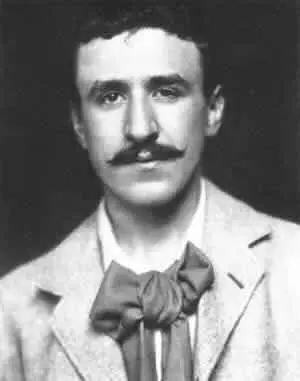On December 10, 1928 in Celtic History
Charles rennie mackintosh, artist, architect and designer, died

Charles Rennie Mackintosh (7 June 1868 – 10 December 1928), the renowned Scottish artist, architect, and designer, was born on June 07, 1868, in Glasgow, Scotland. He became a leading figure in the Arts and Crafts movement and the Art Nouveau movement, making significant contributions to the fields of architecture, design, and the visual arts.
Death
Charles and his wife, Margaret Macdonald, lived in France for two years from 1925-1927, before being forced to return to London in 1927 when had developed a lump in his tongue and a doctor friend in Port Vendres recommended that he return to London for treatment.
In London, after a diagnosis of tongue cancer, a friend Jessie Newbery arranged for treatment at Westminster Hospital where the lump was surgically removed.
Mackintosh was admitted to a nursing home just along the road at 26 Porchester Square where he died on 10 December 1928 at the age of 60.
Architectural Career
Mackintosh is perhaps best known for his architectural designs. His style is often characterized by intricate details, organic forms, and a combination of traditional Scottish elements with modern influences. Notable works include the Glasgow School of Art and the Hill House in Helensburgh.
Furniture Design
Mackintosh was also a skilled furniture designer. He created unique and innovative pieces that reflected his architectural style. His furniture designs are known for their simplicity, clean lines, and often feature geometric shapes.
Glasgow School
Mackintosh, along with his wife Margaret MacDonald and a few other artists, formed a group known as “The Four,” and they played a key role in the Glasgow School. Their work significantly influenced the development of the Glasgow Style, an important contribution to Art Nouveau.
Watercolorist and Painter
In addition to his architectural and design work, Mackintosh was a talented watercolorist and painter. His artistic output extended to various media, and he created beautiful botanical studies and decorative panels.
Marriage to Margaret MacDonald
Mackintosh’s creative partnership with his wife, Margaret MacDonald, was crucial to his artistic endeavors. Margaret was also an accomplished artist and contributed significantly to their collaborative works.
Later Years and Legacy
Despite his talents, Mackintosh faced challenges and had a relatively short-lived career. His later years were marked by financial difficulties, and he moved to the South of France with Margaret. After his death in 1928, Mackintosh’s work gained increasing recognition, and he is now regarded as one of the most influential figures in the history of design and architecture.
Related Content

Shane Patrick Lysaght MacGowan, lead singer of the Pogues, died

St Machar Day, patron saint of Aberdeen

Oíche Shamhna - Cetlic New Year Eve (Halloween)

ALBAN ELFED (Welsh Bardic name for autumn equinox)

Feast day of St. James

John Davie Burgess, King of the Highland Pipers, died at age 71.